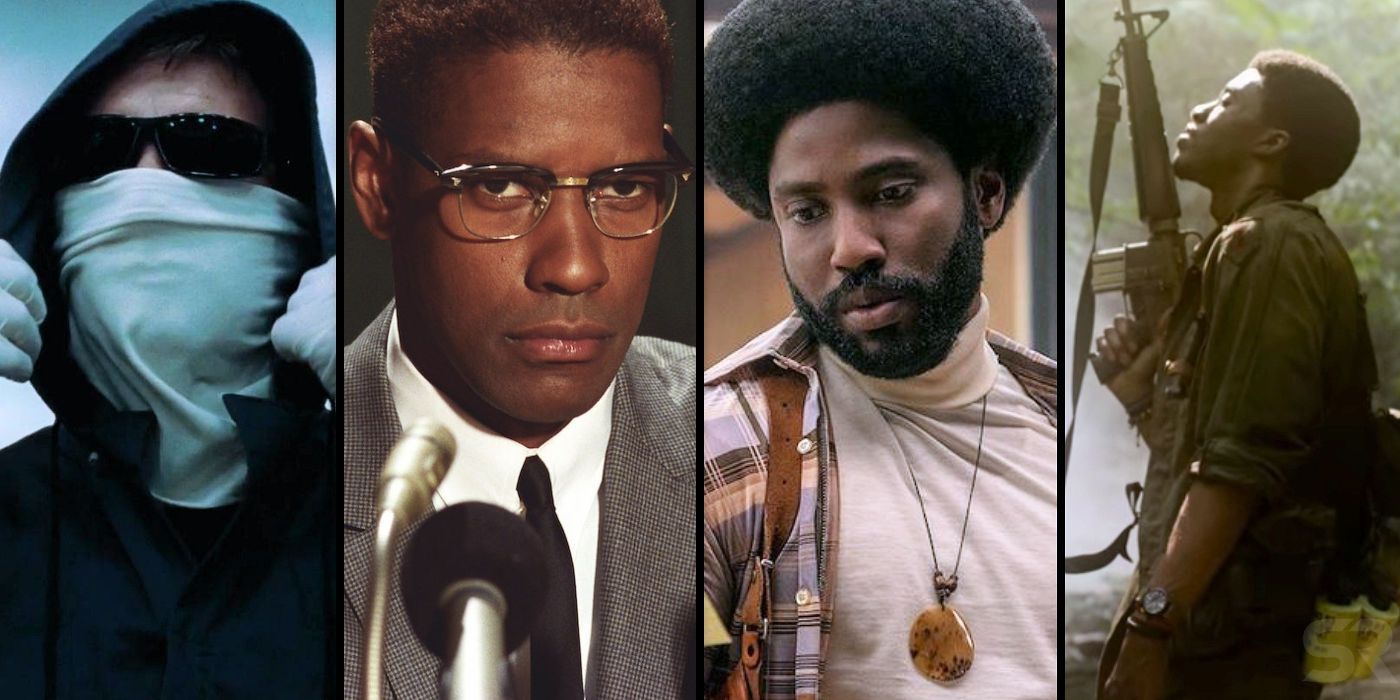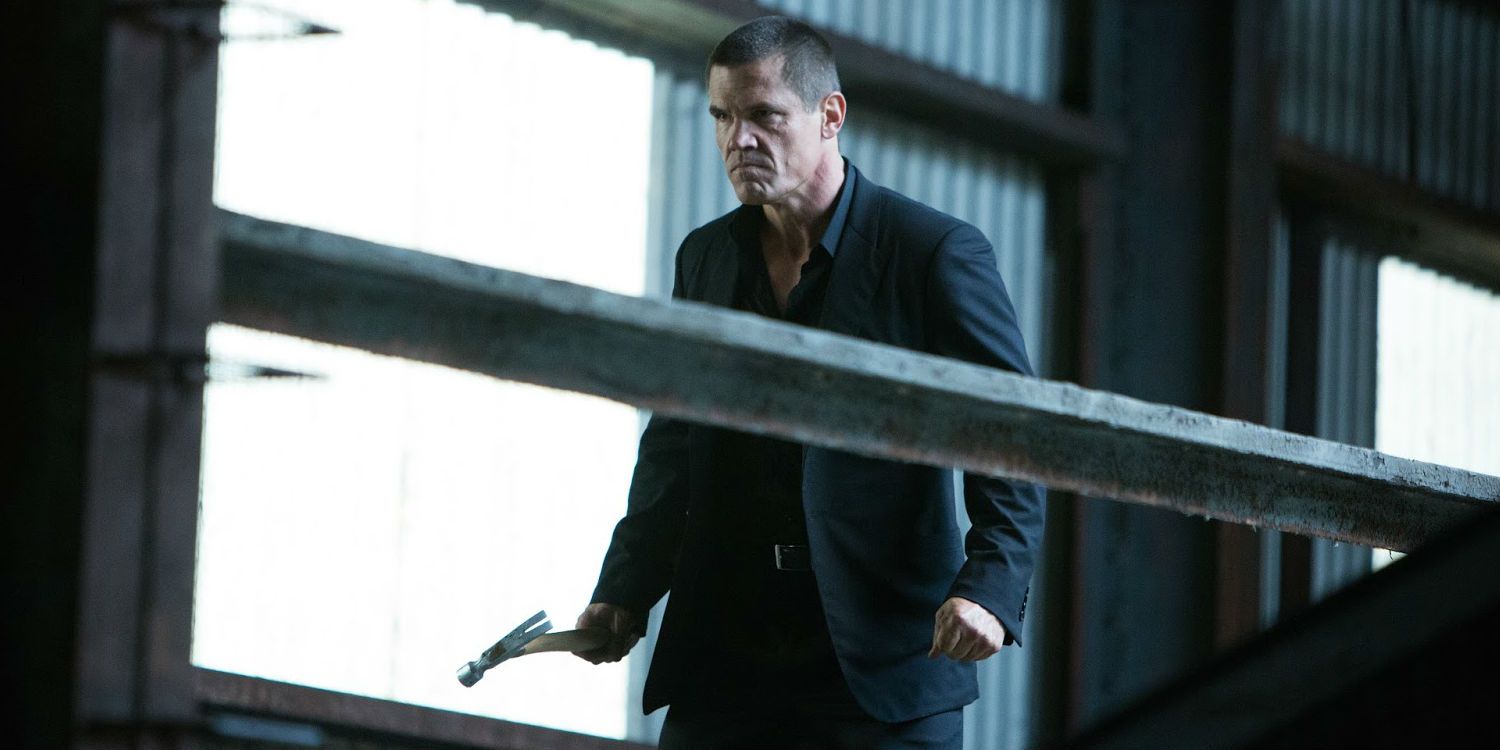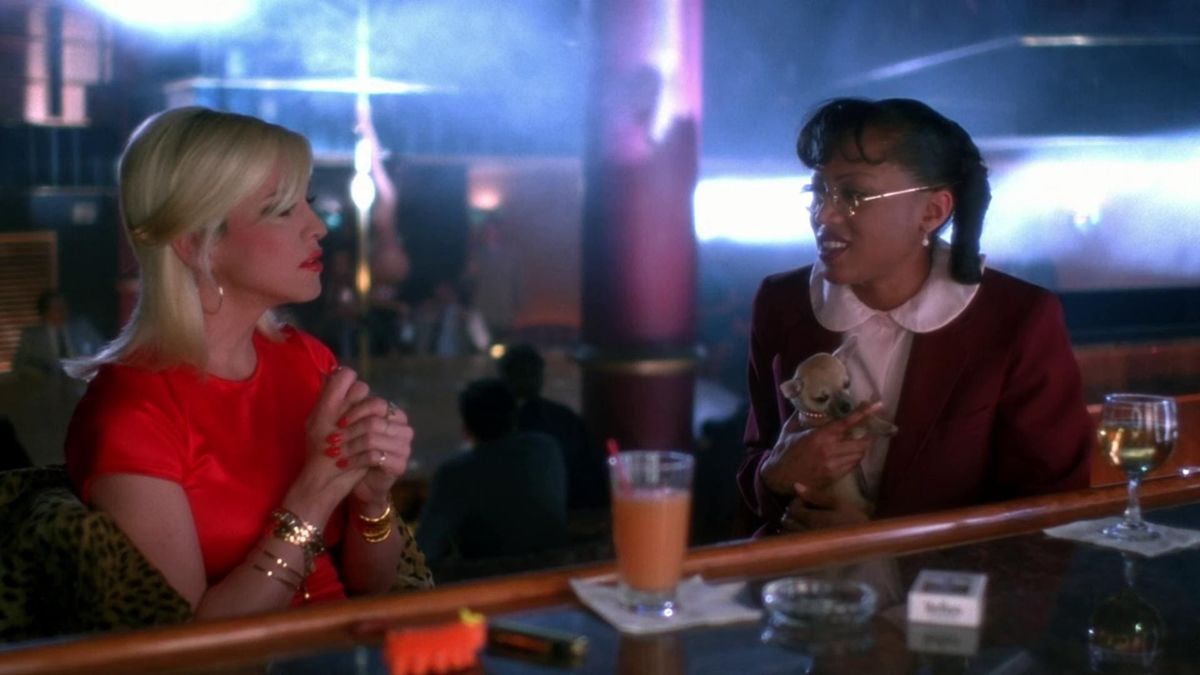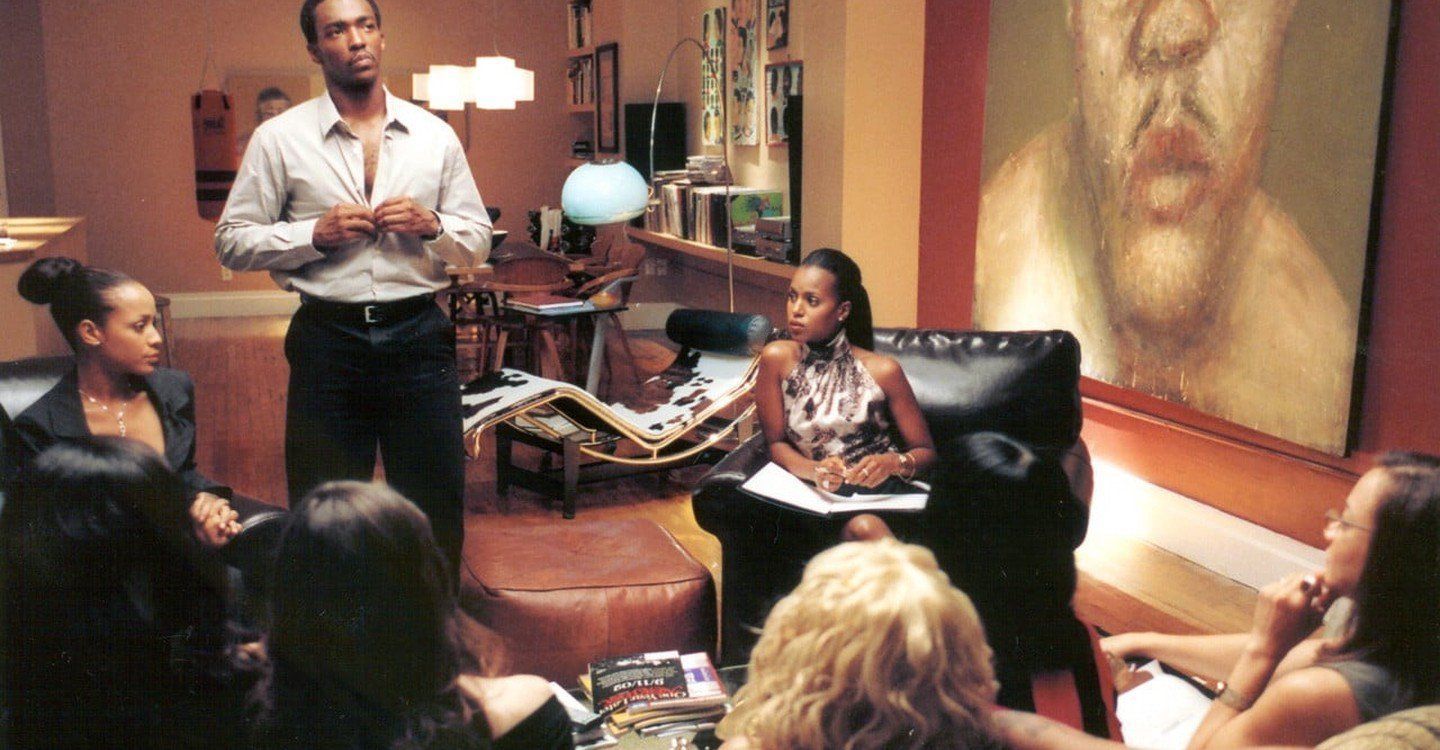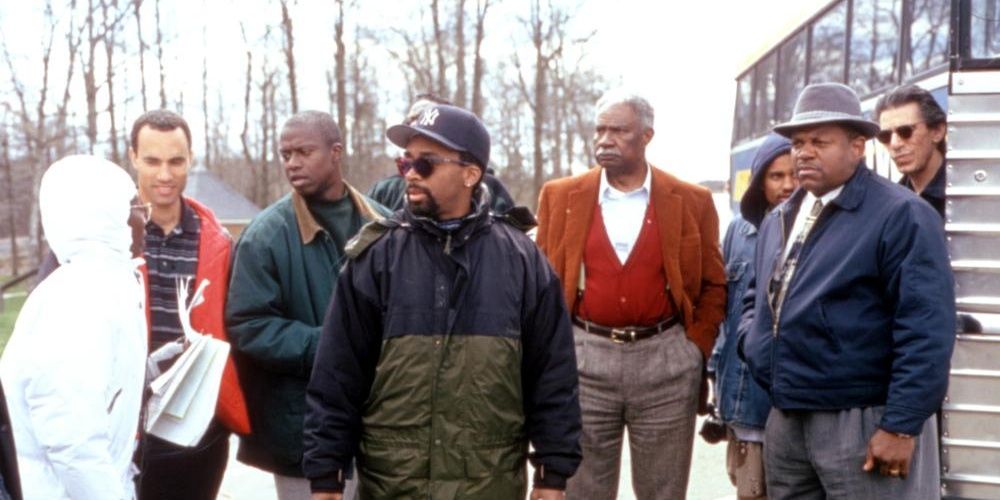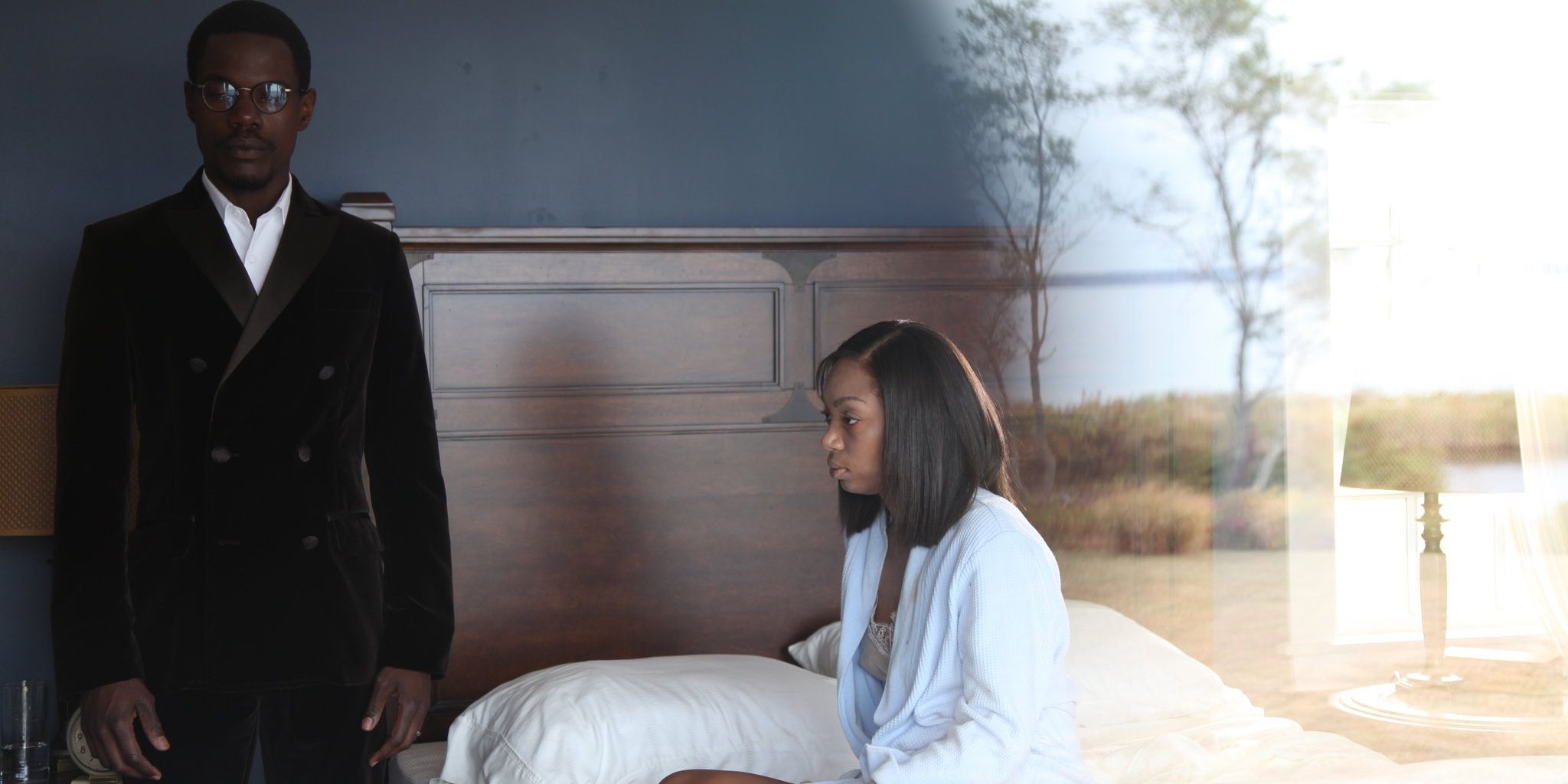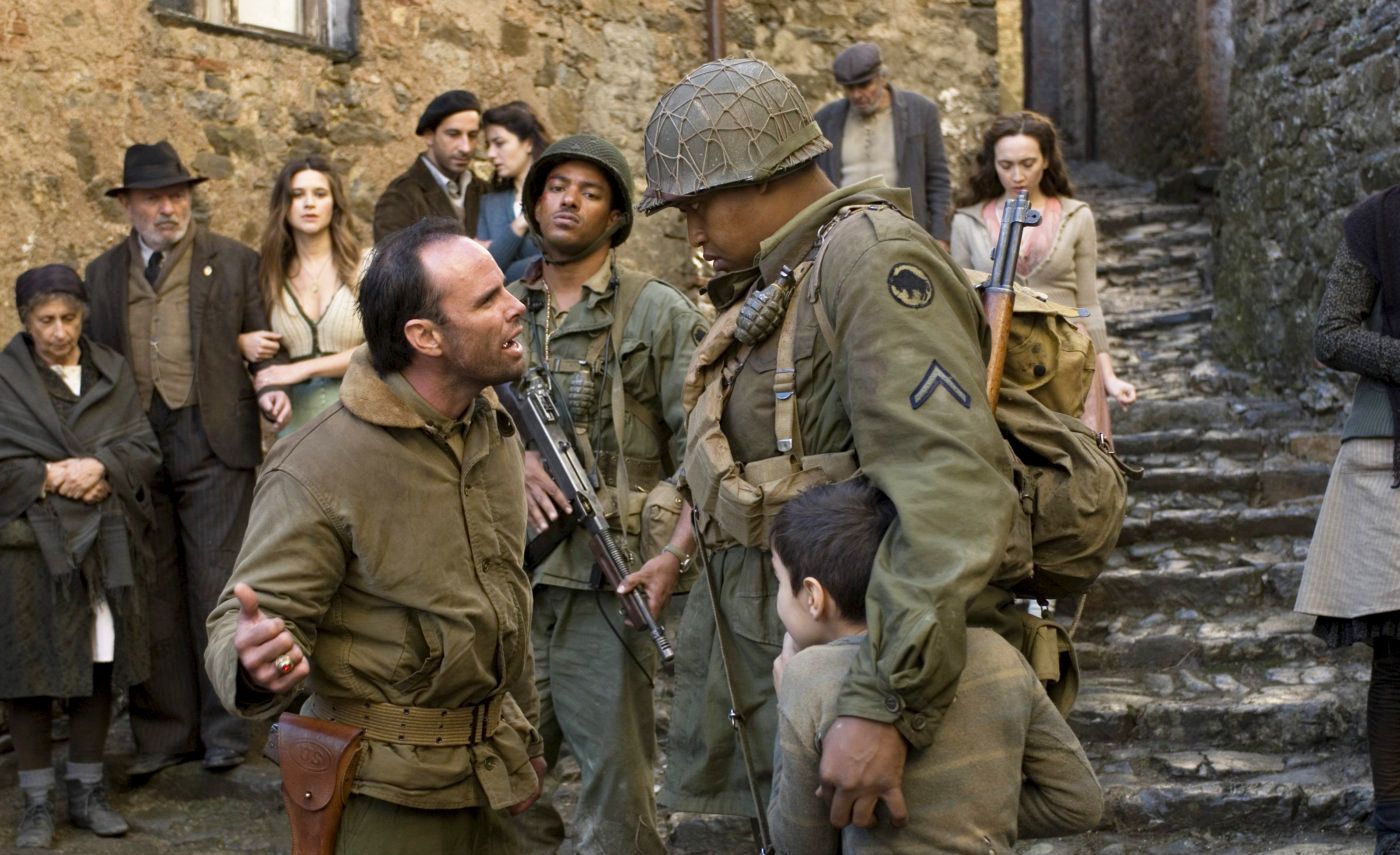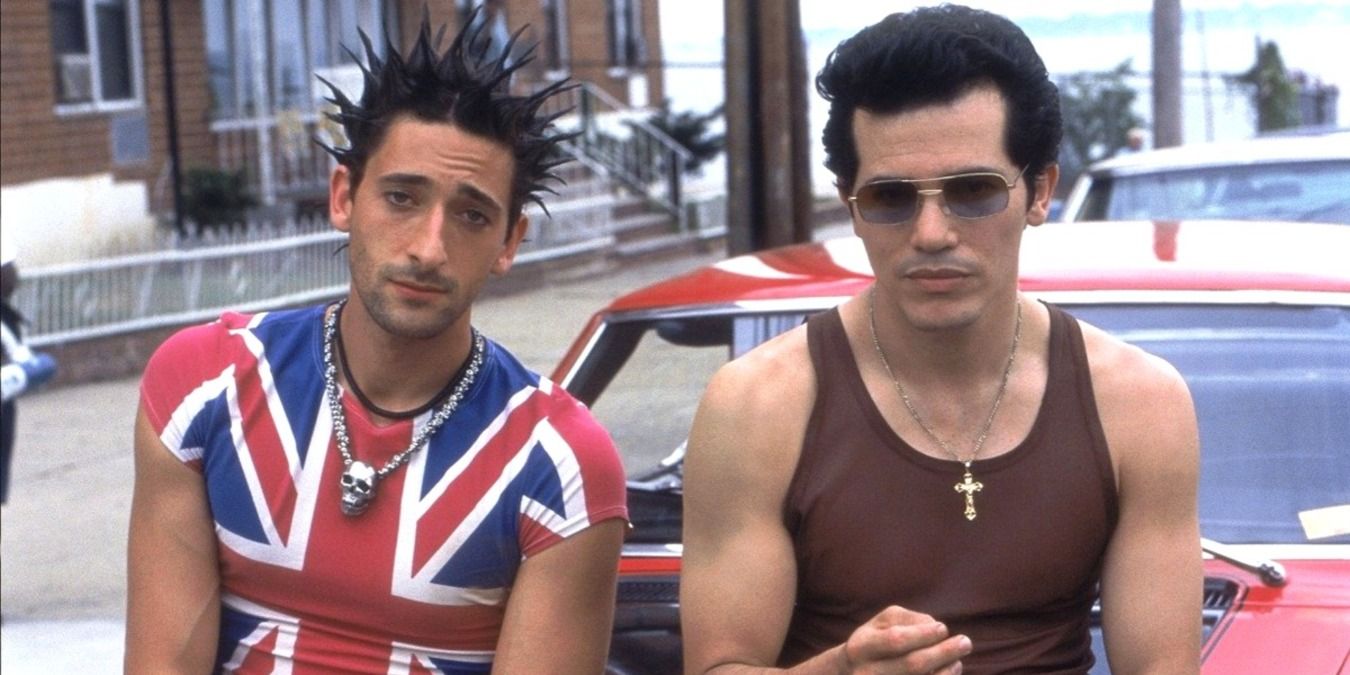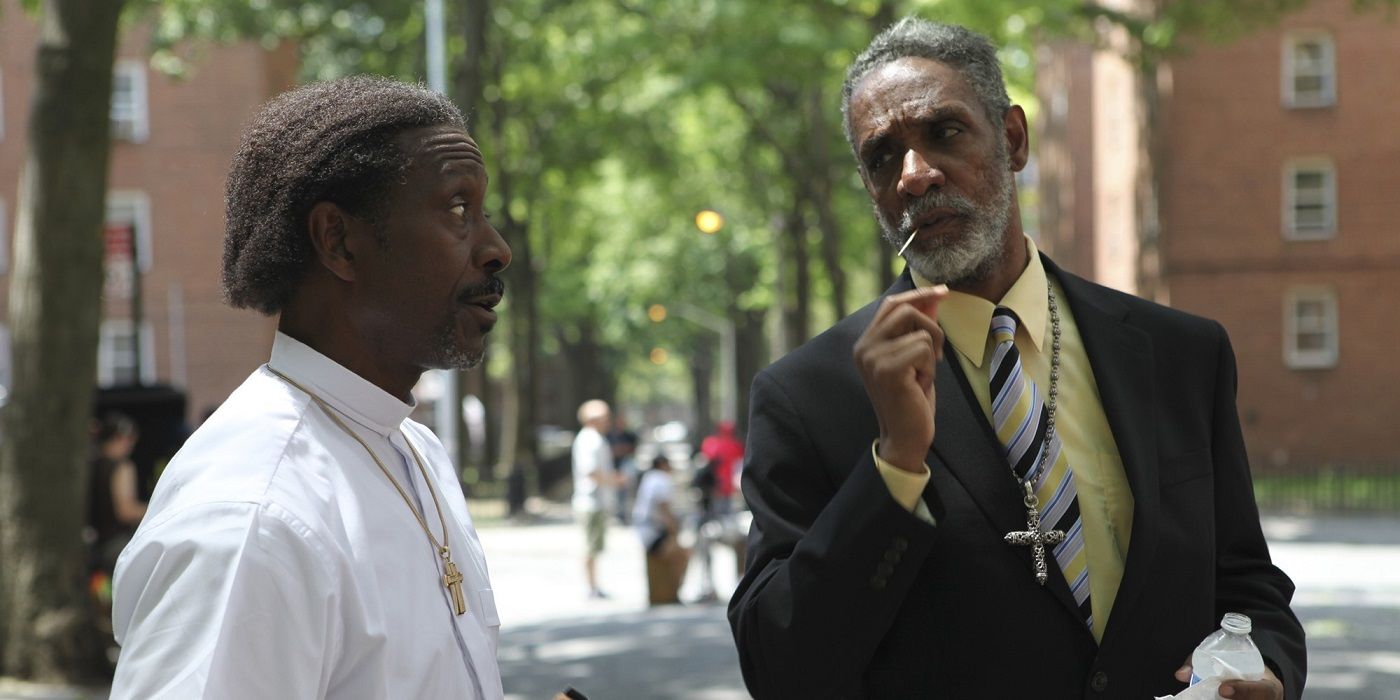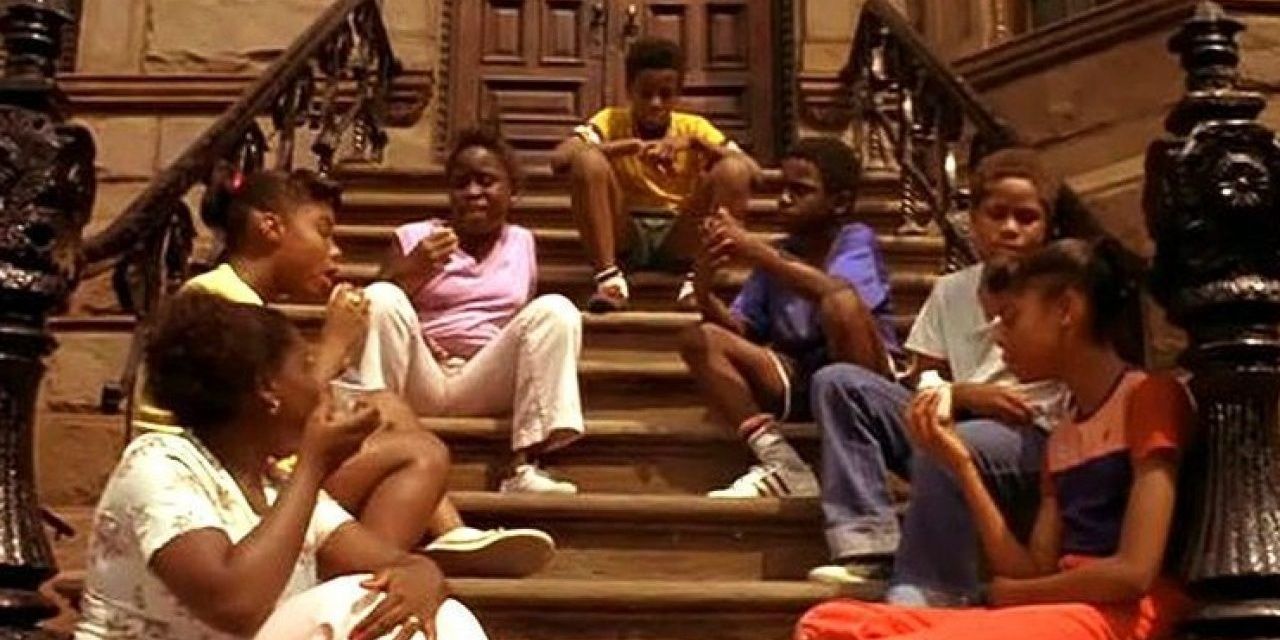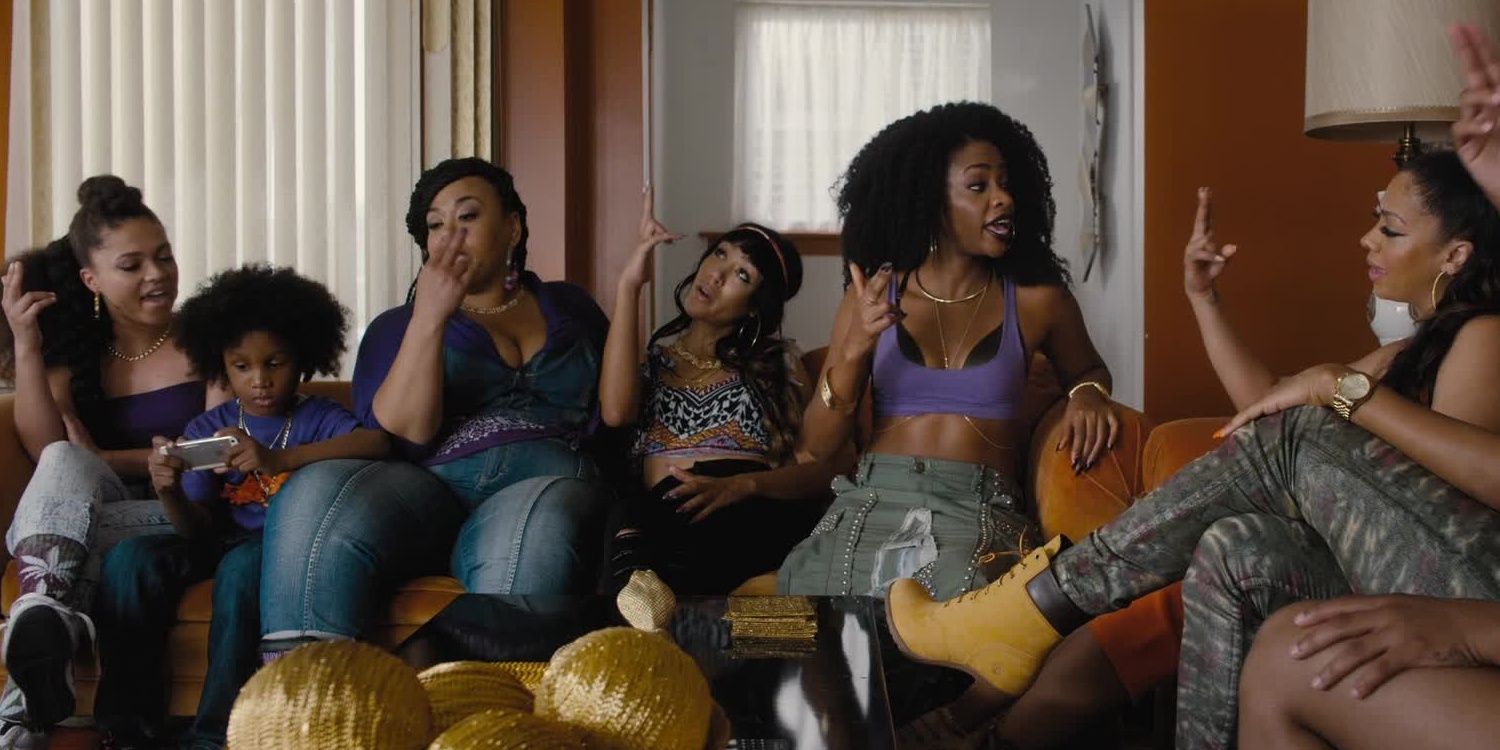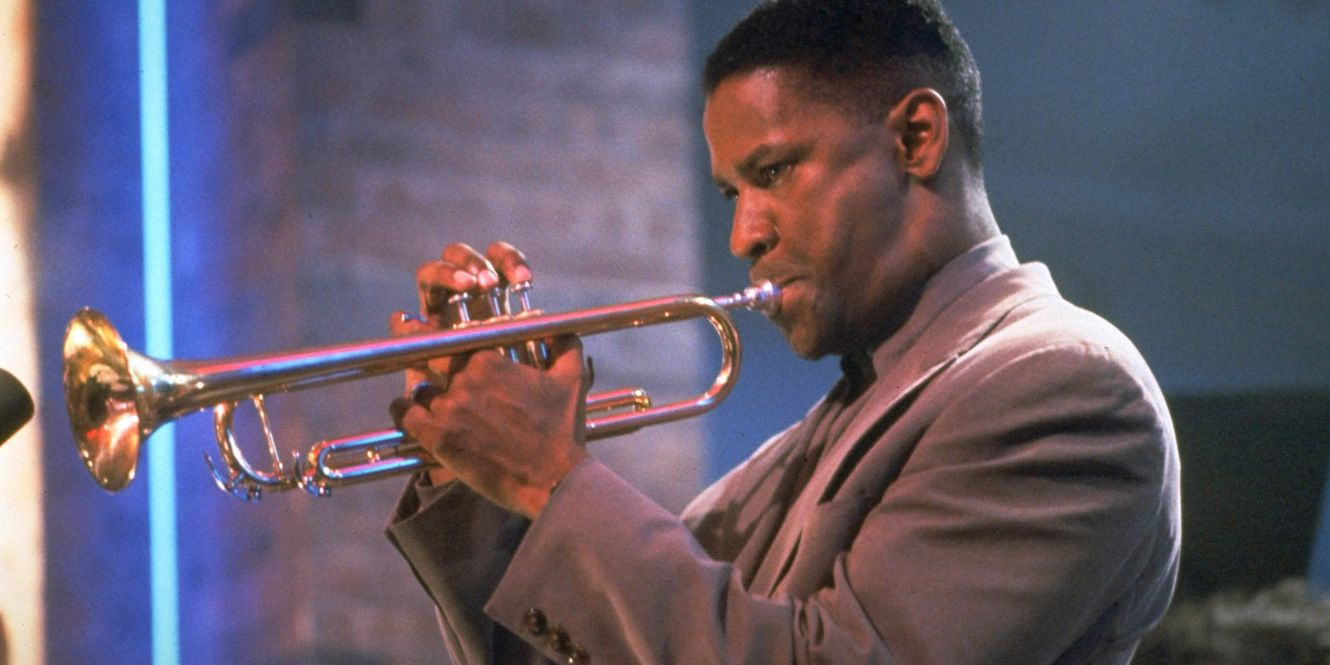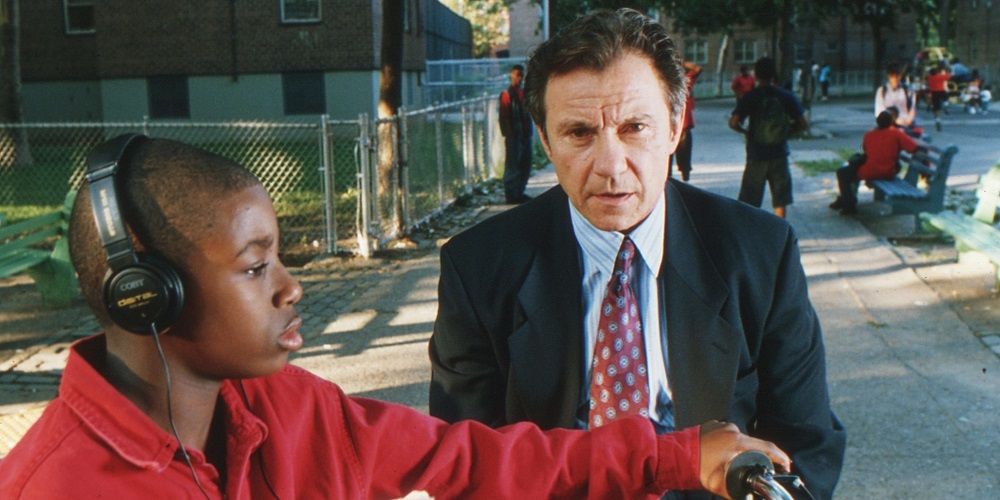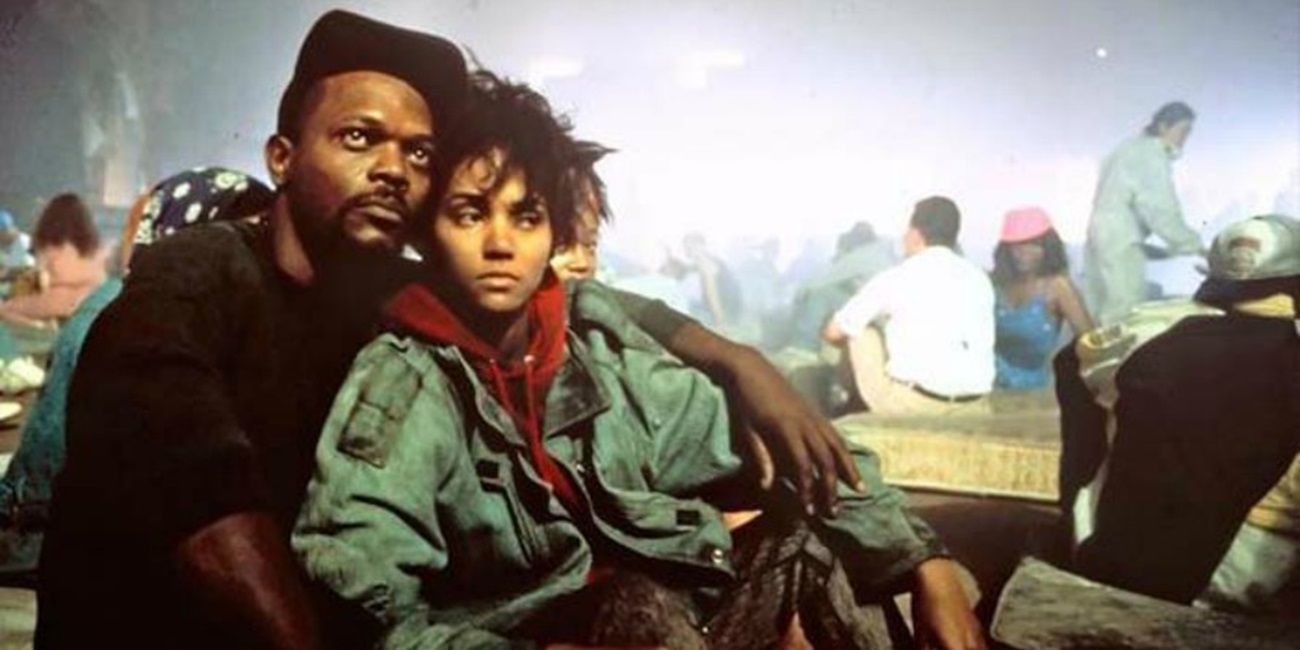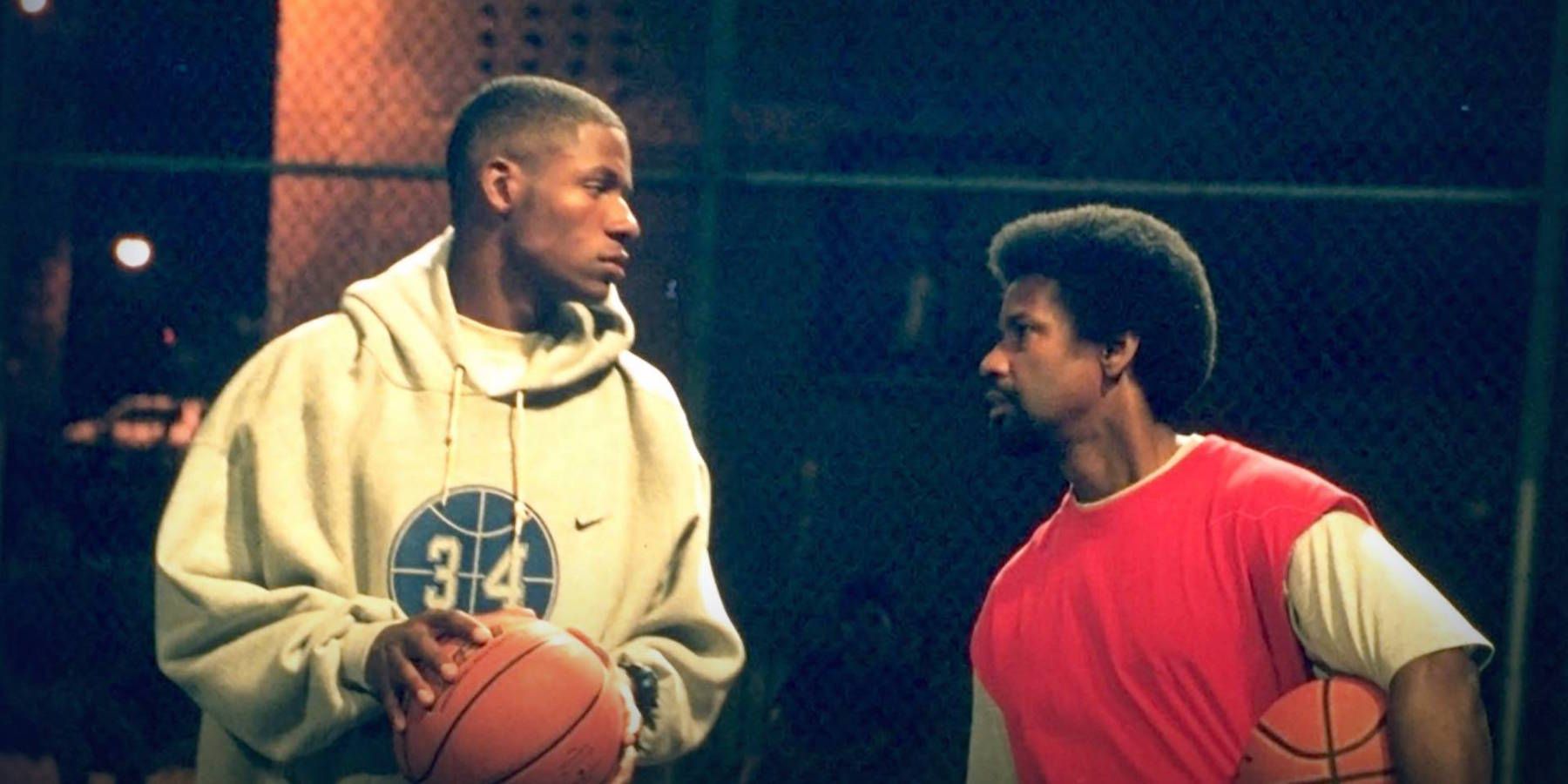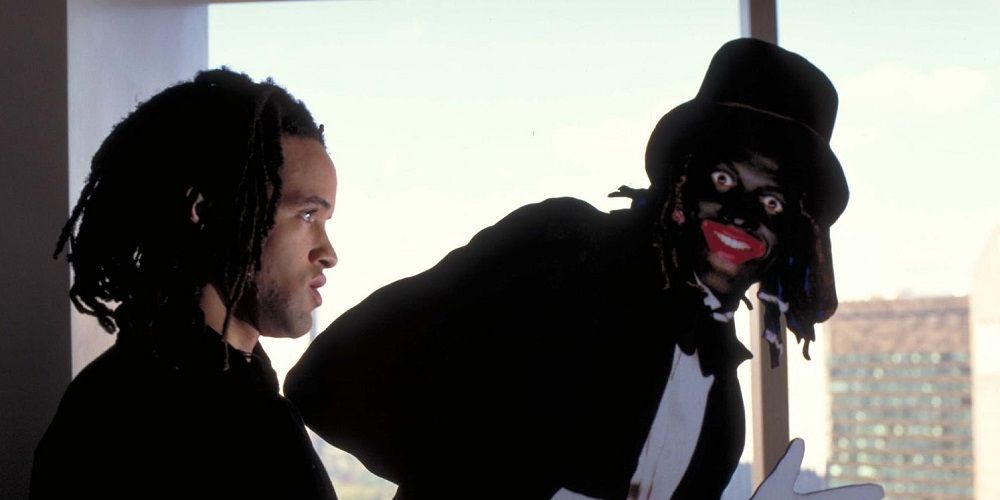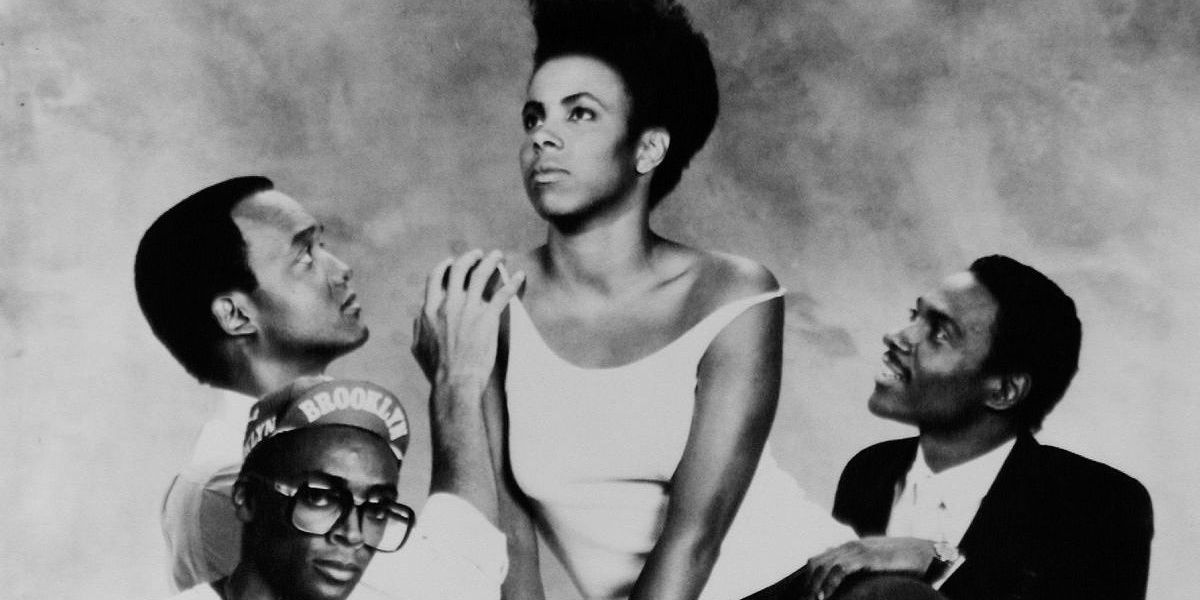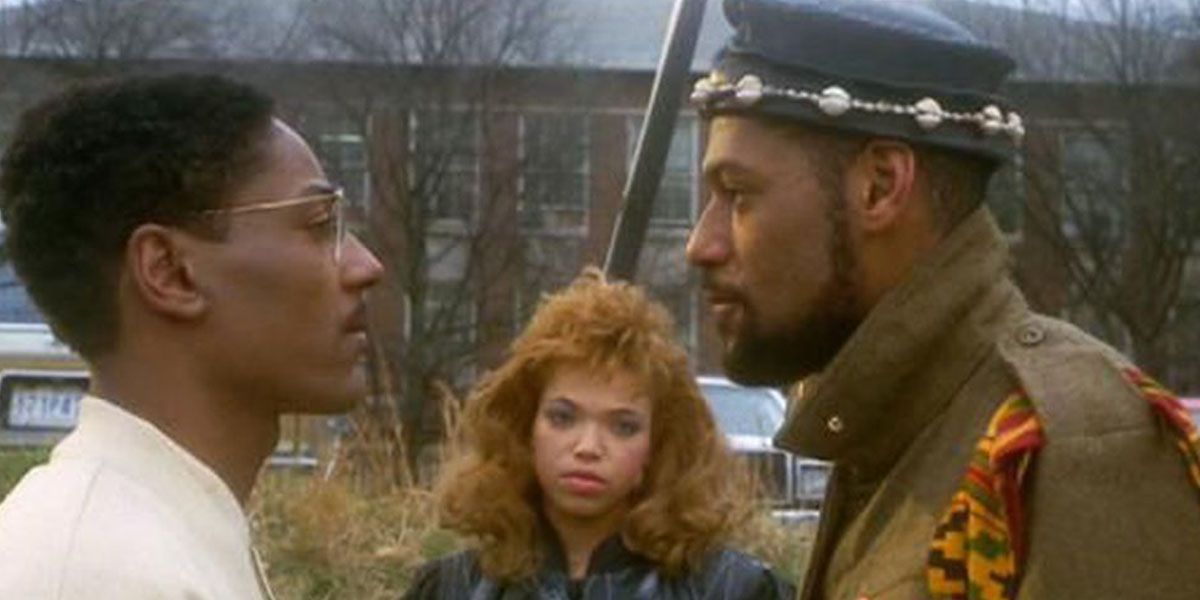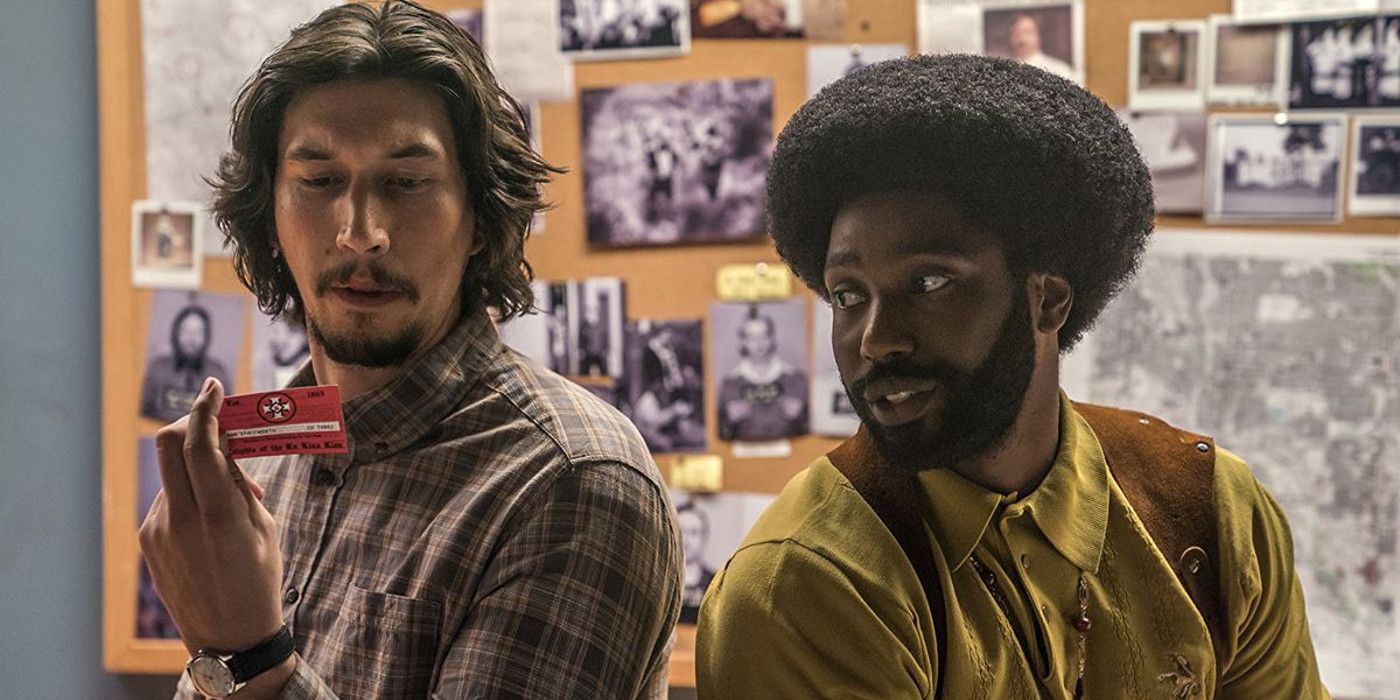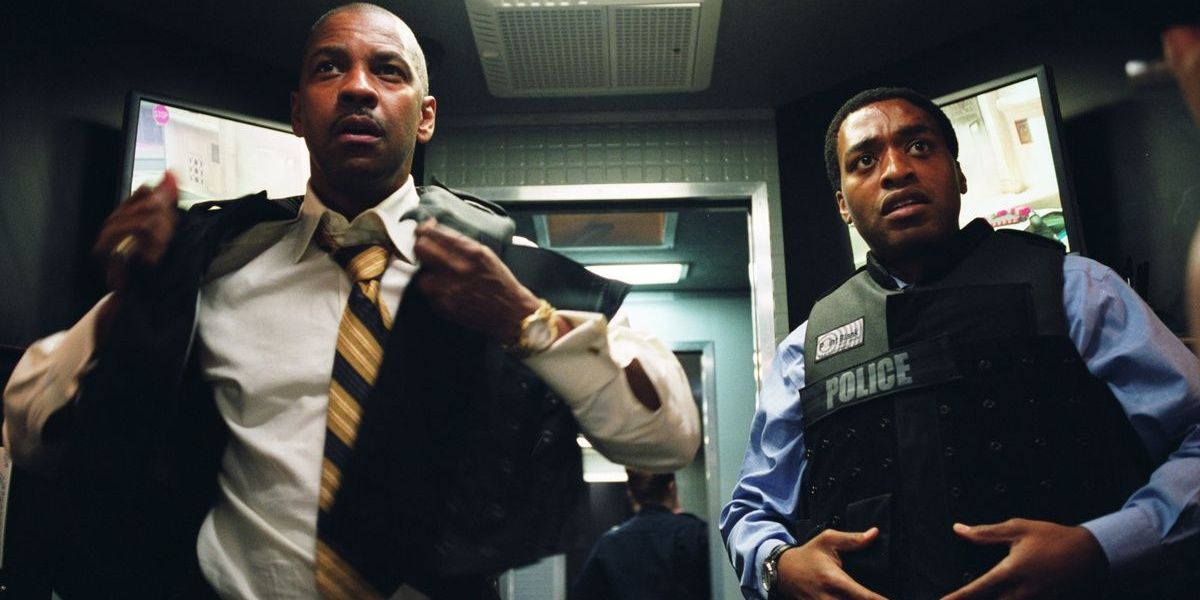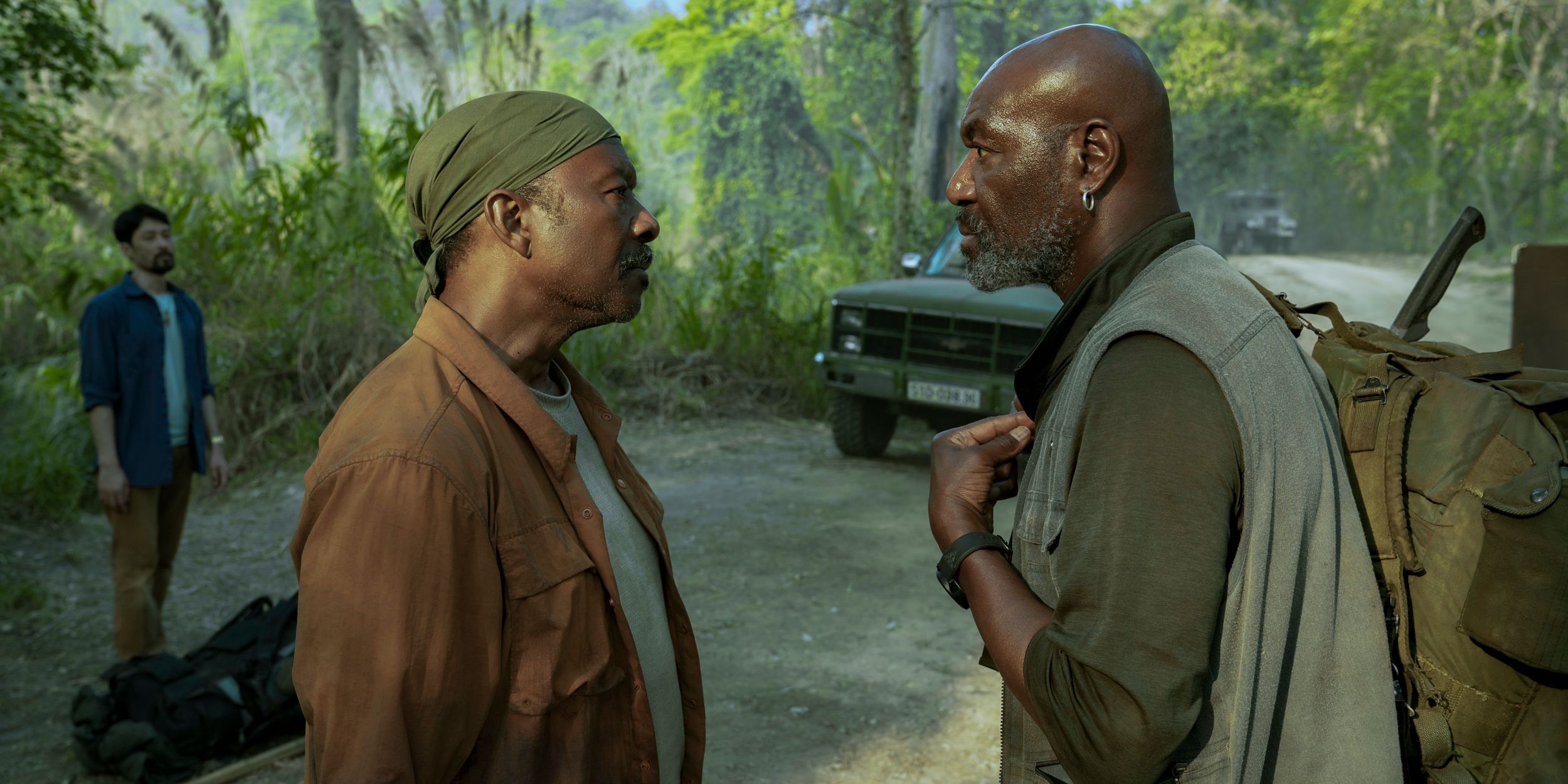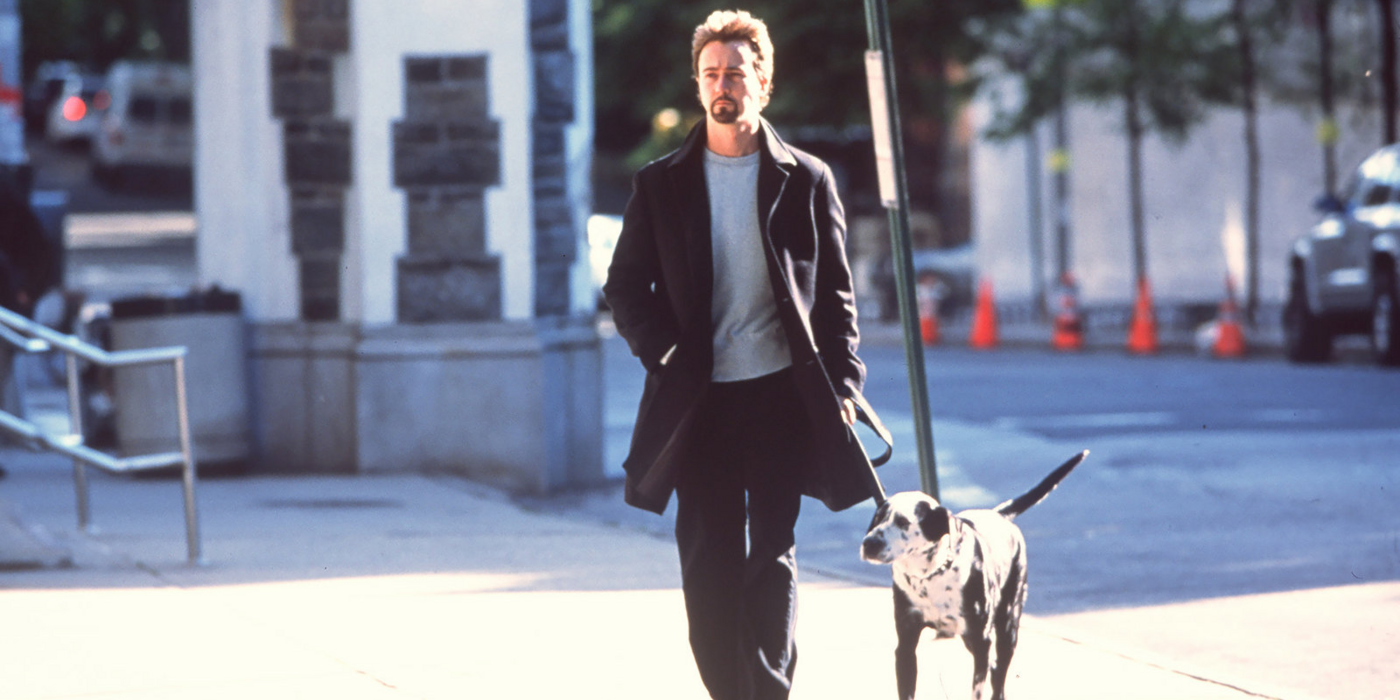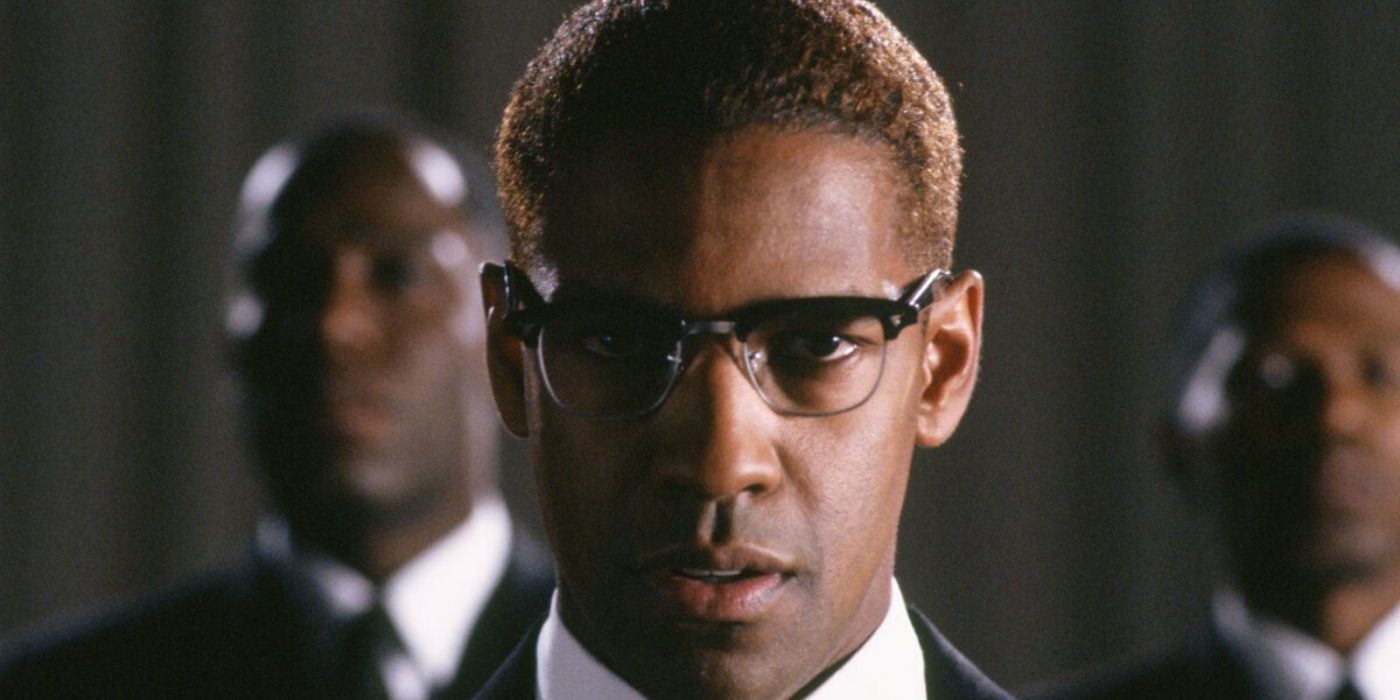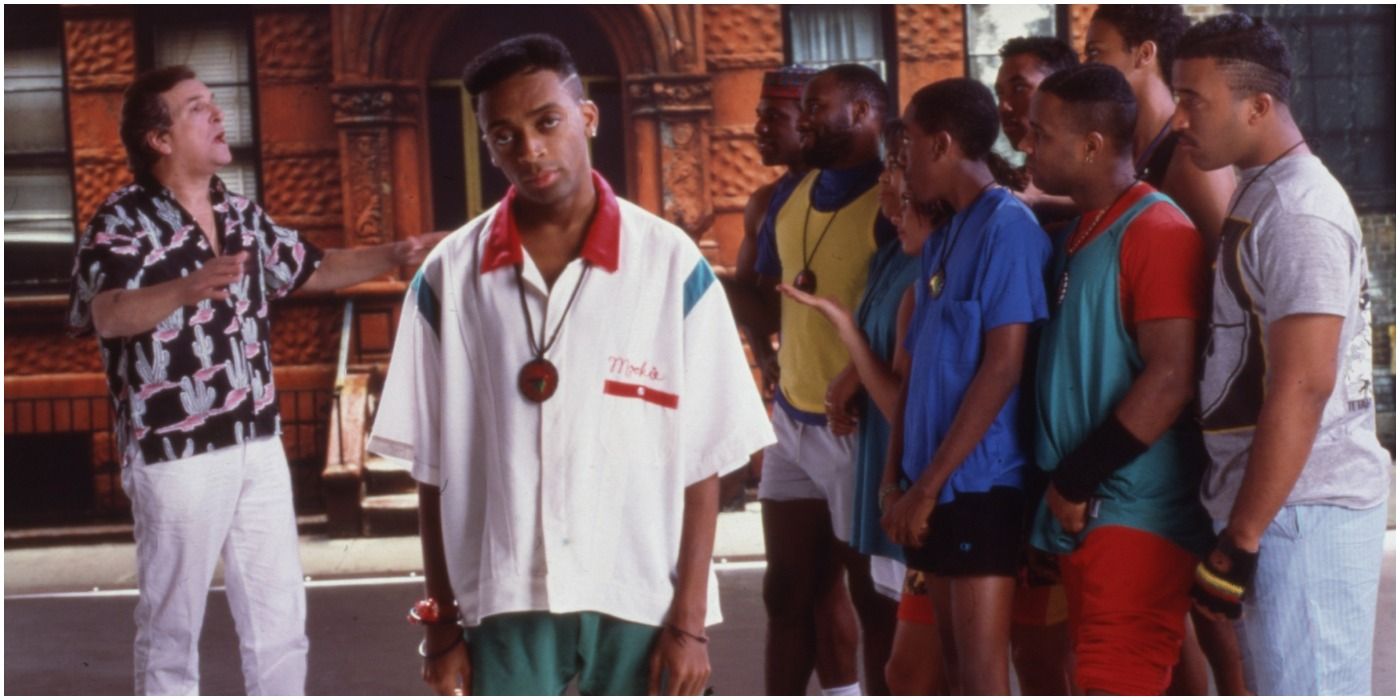Spike Lee has enjoyed an illustrious career, and here's every one of his movies ranked from worst to best. Over the course of 35 years, Spike Lee has defined himself as one of America’s best, most influential, and often most divisive filmmakers. One of the leading figures in Black cinema, Lee’s work is impossible to ignore, even at its creatively weakest. He’s a true provocateur who sparks heated conversations with each new movie and he continues to be a jolt of life to the American film industry well into his 60s.
Lee never does the same thing twice. Intensely prolific, he often makes a movie a year, all while working as a professor at NYU and making documentaries, stand-up specials, commercials, and much more. All these years since his fiery debut, Lee has lost none of his passion or righteous fury at the ills of the world. His latest film, Da 5 Bloods, now available to watch on Netflix, sees him on fine furious form and receiving some of his best reviews in years, but where does the drama stack up against the other fascinating and varied movies in his back-catalog?
This article focuses specifically on Spike Lee’s 23 feature films and not include his extensive and incredible work as a documentarian and director of filmed theater. If you are interested in those works then be sure to watch When The Levees Broke: A Requiem in Four Acts, his four-part documentary of the devastating impact of Hurricane Katrina on New Orleans, and Passing Strange, his movie of the Broadway musical of the same name.
23. Oldboy
Park Chan-wook's Oldboy is a radical thriller that brought a new era of Korean cinema to Hollywood. To this day, the movie casts a large shadow over the industry and has provided influence for a whole generation of directors. It didn't need to be remade. How could you capture that magic twice? Even Spike Lee couldn't pull it off and the end result is a lifeless and oddly perfunctory affair that descends into the laughable where the original made us wide-eyed with shock. The Oldboy remake was heavily recut by the studio, so the blame can't be placed entirely on Lee for this mess. It's all too depressingly conventional in the end, and that may be the worst thing any movie directed by Spike Lee can be.
22. Girl 6
Pulitzer Prize-winning playwright Suzan-Lori Parks penned the screenplay for Girl 6, the story of a sweet innocent young woman who falls into the world of phone sex operators, and it's sort of hard to believe that a woman wrote this film that seems to wholly misunderstand the female gender at every turn. The potential complexities of this topic are reduced to an oddly black-and-white virgin-whore complex. Neither Spike Lee nor Lori-Parks seems to like their protagonist much, and she is often side-lined by bad dialogue, a lack of focus on her arc, and some truly weird celebrity cameos, including Madonna and Quentin Tarantino. Its only saving grace is a soundtrack composed by Prince.
21. She Hate Me
When Spike Lee misses the mark, he does so in near-spectacular fashion. She Hate Me follows a disgraced executive who decides to make money by offering his services as a sperm donor to lesbian couples. Lee has faced criticism over the years for his ham-fisted take on gender politics and She Hate Me may be the most egregious example of how bad his takes can be. It's not provocative or conveying a larger societal message; it's just offensive and kind of gross. It's a shame to see such talented actresses like Kerry Washington be saddled with this borderline-hateful material.
20. Get On The Bus
In 1995, the Million Man March took place in Washington D.C., a gathering of Black men from across America as part of a grassroots movement to garner attention from politicians and the media at large regarding issues of Black voters. Lee uses this occasion to dramatize those very issues in Get On the Bus, Mostly comprised of conversations between some top-notch actors as they offer differing opinions on topics of race, masculinity, politics, and more, the movie is a minor effort but one that stands as an interesting time capsule of a highly specific moment in time in America of the 1990s. One for Lee completionists only.
19. Da Sweet Blood of Jesus
Lee took to Kickstarter to fund his semi-remake of the experimental horror Ganja and Hess. It's fascinating to see a Black vampire movie given how overwhelmingly white the genre is and there's an impressively nightmarish tone to the entire piece that effectively captures the suffocating experience of lacking control over one's body. Sadly, it's just not scary enough to truly work. For a vampire movie, it's curiously bloodless. The best vampire movies use that central metaphor to explore wider issues and Da Sweet Blood of Jesus feels oddly bereft of that. Bonus points, however, for evil butler Rami Malek.
18. Miracle at St. Anna
Spike Lee making a World War II movie felt like a great decision at the time, but Miracle at St. Anna shows a director out of his depth. Based on the story of a group of Black soldiers who sought refuge in a Tuscan village, the movie is overstuffed and overlong and feels oddly tentative in a way that simply does not befit Lee’s talents. It’s a film that somehow feels simultaneously too much and not enough, and not in the ways that Lee can often wield for emotional and stylistic force. Miracle at St. Anna has great intentions but he would go on to make a far better war movie this year.
17. Summer of Sam
Nobody would ever accuse Spike Lee of trying to copy another auteur's style, but Summer of Sam is probably the closest he'll ever get to making a Martin Scorsese movie, for better or worse. Set during the Summer of 1977 when New York was plagued by both an epic blackout and the killings of David Berkowitz, the movie is knowingly trashy and stark in a way that Lee often avoids. His outsider take on an Italian-American neighborhood lacks the layers and warmth of his other films and borders on offensive at times. It's certainly a movie that makes an impact, and the cast are excellent as expected (John Leguizamo is especially strong), but Summer of Sam feels like a movie where you're not entirely sure what the point of it all was.
16. Red Hook Summer
Red Hook Summer saw Spike Lee return to his low-budget roots, free of big studio interference and free to tell whatever story he desired. Shot guerrilla-style and often with the use of iPads, this family drama has the ferociousness of a director off the leash. Clarke Peters, perhaps best-known for The Wire, gives a stellar performance as a preacher of a crumbling church trying to keep the good word alive. There's a wonderful energy to Red Hook Summer but it's so unwieldy that you wouldn't be shocked to hear that Lee was making it up as he went. That's not necessarily a bad thing but it exposes how Red Hook Summer was only a few screenplay drafts away from being something truly special.
15. Crooklyn
One of only two Spike Lee movies with a PG-13 rating, Crooklyn is a semi-autobiographical family portrait that is one of the director's warmest efforts. Bolstered by a superb cast that includes Zelda Harris, Alfre Woodard, and Delroy Lindo, Crooklyn allows its story to quietly unfolds by having its young female protagonist observe the world around her. It’s a softer effort from Lee and one that may prove enticing to viewers who are less inclined towards the director’s usual style, but its inconsistent tone sends it off the rails by the third act.
14. Chi-Raq
The first film to be produced by Amazon Studios, 2015's Chi-Raq sees Lee veer wildly between razor-sharp entertainment and awkward social satire. Based on Lysistrata, a classic Greek comedy from 411 BC, Chi-Raq imagines a riotous solution to gang violence in Chicago's south side - until the fighting ends, the women of the city will withhold sex indefinitely. Lee has seldom been more ambitious, taking on Greek satire and combining it with music, comedy, satire, and a level of anger that feels palpable on every scene. It’s gloriously over-the-top but often difficult to keep up with, as it seems like even Lee doesn’t know what he wants to say or do with this story. The final act is especially messy, but what a wonderful mess it all is. After a few years of quieter, less acclaimed efforts, Chi-Raq felt like Lee was announcing his return to the forefront with a boom.
13. Mo’ Better Blues
How do you follow up Do the Right Thing? You make a musical comedy-drama with Denzel Washington. Critics at the time wrote Mo' Better Blues off as a minor effort, a classic example of a film-maker struggling to overcome the immense pressure of their break-out movie. It is a quieter and less urgent effort than Do the Right Thing, but how could it be anything else? Instead, Mo' Better Blues is a more focused character study on a prodigy whose value for success above all else becomes his downfall. The depiction of the jazz scene of late 1960s New York is as vibrant and eclectic as anything else Lee has made.
12. Clockers
Originally intended as a Martin Scorsese movie, Spike Lee took over Clockers when he dropped out in favor of Casino, leaving Lee to re-write the script to his tastes. Based on a novel by Richard Price, Clockers is a suitably moody crime drama about a small-time drug dealer caught up in a murder investigation that quickly descends into chaos. As is befitting of the movie's Saul Bass-inspired poster, Clockers is Lee's hard-boiled noir, a study of the ecosystem of crime and punishment that has become increasingly inescapable for many Black men. Its opening credits, a montage of the violent murder scenes of young Black men, is one of Lee’s most striking moments as a director.
11. Jungle Fever
The big hook of 1991's Jungle Fever is the tumultuous affair between a married Black architect, played by Wesley Snipes, and his white secretary, played by Annabella Sciorra. It is typically provocative and ambitious stuff for Lee and a lot of it hasn't aged well. What keeps the movie timeless and bracing in its urgency, however, is the subplot centered on Samuel L. Jackson's character. He plays Snipes's crack addict older brother and Jackson sets the screen on fire with his unflinching performance of a man at his lowest ebb. He even won Best Supporting Actor at the Cannes Film Festival for his performance, an award that is seldom given out by the jury.
10. He Got Game
Another collaboration with Denzel Washington, 1998's He Got Game casts the actor as a prisoner serving a life sentence for killing his wife. The state's governor paroles him for a week and promises him a reduced sentence if he can convince his son, one of the top-ranked basketball prospects in the country, to play for his alma mater. He Got Game is hailed as Lee’s best movie since Malcolm X, and it certainly deserves more credit than it often receives in retrospectives of the director’s career. As well as weaving a tricky but heartfelt portrait of a deeply complicated father-son relationship, the movie offers a sharp depiction of the power of sports itself, both as a personal obsession and one that unites a nation.
9. Bamboozled
Spike Lee has reveled in being a divisive filmmaker but there may be no more controversial film in his catalog than Bamboozled. A scathing indictment of late 1990s and early 2000s media and the dawn of reality TV, this satire imagines what would happen if a network commissioned a minstrel show, complete with blackface and every racist stereotype imaginable, and it became a nationwide success. Depending on who's asked, Bamboozled is either a stellar social critique or a wildly tone-deaf rant. But really, it's the former. The movie forces white audiences to confront how happy they are to accept anti-Blackness as a form of entertainment, viewing it as preferable to the real thing, and how the media at large never stopped investing in the racism of minstrelsy. The end Montage of Hollywood’s history of blackface is one of Lee’s greatest achievements.
8. She’s Gotta Have It
Shot in black-and-white for only $175,000 over the course of 12 days, She's Gotta Have It signaled the arrival of Spike Lee with a boom. It's remarkable how much of what we know as Spike Lee movie-making is present in his feature debut, from his visual grammar to the depiction of New York's vibrant neighborhoods. Some of the sexual politics of the movie haven't aged well and Lee himself has noted regret about that but as a time capsule of a time, a place, and a director making his debut to the world of cinema, She's Gotta Have It is its own beast worth celebrating.
7. School Daze
Made a year before Do the Right Thing, School Daze is arguably Lee's funniest movie as well as one of his most underrated. The musical comedy takes inspiration from Lee's experiences as a student at the historically Black university Morehouse, and shows a rollicking world of frat house clashes, colorism, classism, political demonstrations, and life-defining parties. School Daze may be tonally inconsistent - a signature of Lee’s work, for better or worse - but even as an example of a director still finding his feet, it’s a riveting watch.
6. BlacKkKlansman
BlacKkKlansman was hailed not only as a new peak for Spike Lee upon release but one of his most mainstream efforts in years (the movie made close to $100 million worldwide and finally landed Lee his long-sought-after Best Director nomination). It certainly has the rollicking tone of a comedy with its concept of a Black police officer who infiltrated the KKK (a true story) and there are laughs a-plenty throughout. The dynamic between Adam Driver and John David Washington (who gives a brilliant star-is-born performance) is akin to the buddy cop comedies that dominated the ‘80s and ‘90s. Of course, that is only the hook for the real punch of BlacKkKlansman's story, a forceful condemnation of a culture that allowed white supremacy to dominate America to this day. The movie may be the best example we have of the power of pop culture to steer society, as BlacKkKlansman takes a direct shot at D.W. Griffith’s The Birth of a Nation, a piece of KKK propaganda wholly embraced by the Klan that is still taught in film schools as an example of pioneering cinema. BlacKkKlansman shows, through the laughs, how such seduction works.
5. Inside Man
Believe it or not, Inside Man was supposed to be a Ron Howard movie, but once he stepped down, his producing partner Brian Grazer had the genius idea to hire Spike Lee, a filmmaker who could not be more different from the old-school studio style of Howard. It's rare that Lee is essentially a director-for-hire, but it turned out to be an amazing decision for Inside Man, one of the best thrillers of the past 20 years.
While it may not have all the expected markers of a Spike Lee joint, there are still enough of the director's quirks to satisfy all, from the Terence Blanchard score to a video game scene that could have come straight out of Bamboozled. Moreover, Inside Man is a lot of fun and as close as Lee has gotten to making a grimy 1970s-style heist film. This is his Dog Day Afternoon, a film that ranks as one of Lee's personal favorites. Lee may not be a typical studio director but when he wants to, he can keep up with the best of them and beat them at their own game.
4. Da 5 Bloods
As if befitting a great Spike Lee movie, Da 5 Bloods is a tad too long, feels like six stories exploding at once, and has the subtlety of a jackhammer. That’s what makes it so wonderful. Da 5 Bloods feels as much like Spike Lee’s old man movie as The Irishman did for Scorsese, a scorching depiction of feeling out of place and out of time. Where Scorsese went for melancholy, Lee goes for righteous anger, focusing his energies on the intersection of America’s military fetish and centuries of anti-Blackness in the context of the Vietnam War. Even as the film embraces the pulp quality of its central story, a cross between Apocalypse Now and Treasure of the Sierra Madre, Lee never takes his foot off the gas.
While the Da 5 Bloods cast is excellent, special attention must be given to Delroy Lindo (The Good Fight). His character, a Trump-supporting Black Vietnam vet with PTSD and decades of pent-up emotions, is one of Lee’s most fascinating creations and Lindo brings him to life with such fervor and subtlety. If he is denied an Oscar nomination for his performance here then it will be one of the true snubs of the 2020 awards season. Da 5 Bloods is already one of the best movies of the year as well as one of Lee’s top achievements.
3. 25th Hour
Based on a novel by pre-Game of Thrones David Benioff, 25th Hour was in the early planning stages when New York was devastated by the September 11 attacks. While most of Hollywood decided not to take on the world-changing event (many movies simply CGI-d the Twin Towers out of skyline shots with no explanation), Lee was never going to be the kind of film-maker who would do that. As one of the great New York directors, it fell upon Spike Lee's shoulders to show how 9/11 impacted the city and he did it with lyrical and thematic gusto. He captures the confusion, the anger, and the futile fury that accompanies feelings of confinement and confusion not only over one’s own life but that of a world in flux. What’s it like to feel so crushed by one’s internal and external conflicts that all one can do is howl? Spike Lee knows.
2. Malcolm X
This grand three-and-a-half-hours long biopic of Malcolm X was one of Lee's long-time passion projects and one he fought to direct after the project was initially given to Norman Jewison. The finished product is one of immense scale and ambition, an uncompromising portrait of an oft-misunderstood historical figure that refuses to soften or sugar-coat his abrasive edges. Often, when biopics decide to take on their subject’s entire life, they become overwhelmed by the narrative or start cutting corners in favor of speedy exposition, but Malcolm X never lowers itself to such cheap tricks. At the heart of the story is Denzel Washington’s powerhouse performance, on that stands as one of the greats of American cinema and one of the most egregious Oscar snubs in history.
1. Do the Right Thing
1989’s Do the Right Thing will be the film that not only defines Spike Lee’s career for the rest of his life but one that will stand as one of the great achievements of 20th century American cinema. It’s almost startling how vibrant and timeless this astounding drama is. Lee creates a pitch-perfect slice-of-life in the streets of Bed-Stuy over the course of one stifling hot Summer day. As the hours pass and the heat increases, we see how simmering racial tensions in the city cannot help but explode. Every aspect of Do the Right Thing is almost smothering in its recreation of this mood, from the eye-burning reds of the cinematography to the fourth-wall-breaking monologues that became the stuff of cinematic legend to Rosie Perez’s ferocious dancing in the opening credits. To this day, audiences argue over whether Mookie did the right thing in the end, an issue that remains depressingly relevant even in 2020. Do The Right Thing lives on as a dishearteningly timeless reminder of how the more things change, the more they stay the same.

